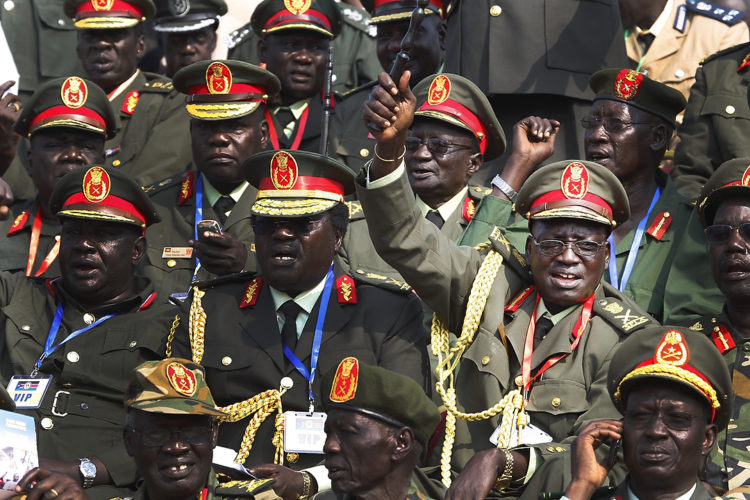In a bid to potentially bring an end to the nearly six-year civil war in South Sudan, former rebel leader Riek Machar has been sworn in as the first vice president of the country. This is part of a deal to forge a unity government that will seek to bring together the two warring factions.
An estimated 400,000 people have been killed during the war and millions have been displaced. Many of those have fled to neighboring Uganda, Ethiopia and Sudan.
This is not the first attempt at bringing the war to an end. Previous peace deals were reached to only later collapse. A similar deal was struck in 2016 as well as 2018, however, neither resulted in a durable peace. The war has led to initiatives at peace, including the one by Ethiopian Prime Minister Abiy Ahmed, who received the Nobel Peace Prize in 2019, or when Pope Francis invited both President Salva Kiir and rebel leader Machar to the Vatican.
It remains to see whether or not this current deal will hold.
Alongside Machar, three others were also sworn in as vice presidents among them Rebecca Garang, the widow of South Sudan’s founding father John Garang. One of the dignitaries attending the swearing-in ceremony was Sudan’s leader General Abdel Fattah al-Burhan.
The brutal war has been exacerbated by ethnic tensions. The 22-year long Second Sudanese Civil War, which ultimately led to South Sudan’s independence from Sudan in 2011, pitted Arab Muslims in the north against Nilotic Christians in the south. On the contrary, the current conflict has borne witness to fighting between the Dinka and Neur ethnic groups to which Kiir and Machar belong to, respectively.
An additional complicating factor has been the presence of oil. The country’s economy is almost entirely dependent on the nation’s oil reserves with much of the fighting, as well as foreign interest in the country, being centered around oil fields with neighboring states having an economic incentive in transporting crude oil through their territories.
The United States has had a controversial role in the country’s ongoing plight. President George W. Bush supported the partition of the country in the Sudanese civil war. Following South Sudan’s independence, President Barack Obama and Secretary of State Hillary Clinton began issuing annual exemptions to South Sudan from the Child Soldiers Prevention Act. The Child Soldiers Prevention Act bars the United States from exporting arms to countries that utilize child combatants.
The use of child soldiers is ubiquitous on both sides in the ongoing war.
While recent history gives cause for pessimism, the winds of change in eastern Africa might make this effort slightly more likely to succeed. With Eritrea and Ethiopia signing a peace treaty in 2018, and a transitional council governing Sudan, it is possible that the region might be able to escape its current misery.
Already have an account? Sign In
Two ways to continue to read this article.
Subscribe
$1.99
every 4 weeks
- Unlimited access to all articles
- Support independent journalism
- Ad-free reading experience
Subscribe Now
Recurring Monthly. Cancel Anytime.











COMMENTS